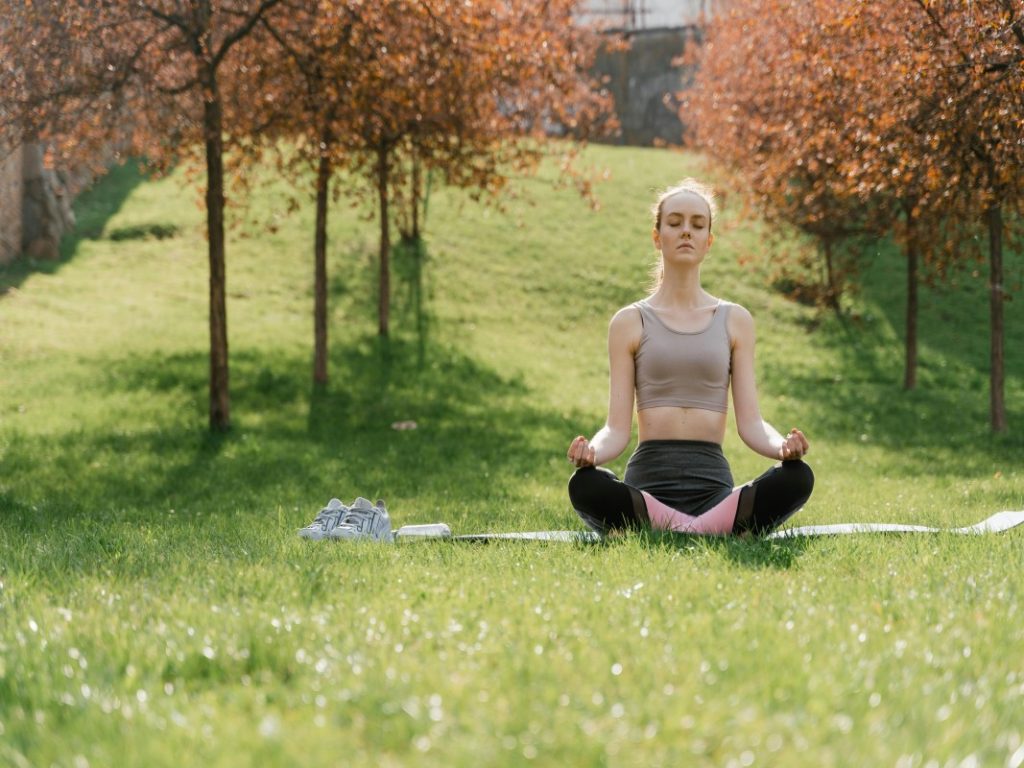In our fast-paced, technology-driven world, stress, anxiety, and mental fatigue have become nearly universal challenges. Amid these pressures, people are turning to ancient practices like meditation to find peace and balance. Meditation is no longer just a spiritual or esoteric practice; it’s now widely acknowledged for its ability to enhance mental, emotional, and physical well-being. Here’s a detailed look at why meditation should be a part of your daily routine.
1. Stress Reduction and Emotional Resilience
One of the primary reasons people start meditating is to reduce stress. Research shows that meditation can decrease levels of cortisol, the stress hormone, which in excess, can lead to numerous health issues including heart disease and high blood pressure. By engaging in mindfulness or focused breathing exercises, you can activate the body’s relaxation response, countering the stress response triggered by modern-day pressures.
With regular meditation, you also build emotional resilience. A calm mind is better equipped to deal with challenges, which helps you respond thoughtfully rather than react impulsively to stressful situations. The result is a more peaceful, grounded approach to life’s ups and downs.

2. Improved Focus and Productivity
Our ability to concentrate has been compromised by constant digital notifications and multi-tasking. Meditation helps sharpen focus and boost attention span, improving overall productivity. By focusing on the breath, a mantra, or a specific part of the body, meditation trains your brain to ignore distractions. Research even suggests that those who meditate regularly can perform better on cognitive tasks than those who don’t, as meditation strengthens the brain’s ability to retain and retrieve information.
Furthermore, meditation has been shown to increase gray matter in the brain’s prefrontal cortex, which governs decision-making and attention. Thus, meditation not only helps you focus better but also enhances your cognitive functions over time.
3. Better Sleep Quality
Sleep issues, including insomnia, affect millions worldwide and are often exacerbated by stress and an overactive mind. Meditation is known to improve sleep quality by encouraging relaxation, calming the mind, and reducing racing thoughts that might prevent restful sleep. Meditation techniques like mindfulness and progressive relaxation help ease the transition from wakefulness to sleep, making it easier to fall asleep and stay asleep longer.
Certain types of meditation can also increase melatonin production, a hormone that regulates sleep, thereby supporting the body’s natural sleep cycles. Incorporating even just 10 minutes of meditation before bed can help prepare your mind and body for deep, restful sleep.
4. Enhanced Self-Awareness and Emotional Intelligence
Meditation cultivates a strong sense of self-awareness, allowing you to observe your thoughts, feelings, and behavioral patterns without judgment. This heightened awareness encourages better emotional intelligence, which is crucial in personal and professional relationships. When you understand your emotional triggers and reactions, you can handle difficult situations with more clarity and compassion.
Additionally, meditation helps you connect with yourself on a deeper level, fostering self-acceptance. Many forms of meditation encourage introspection, which allows you to gain insight into your habits and attitudes, making it easier to make positive changes and pursue personal growth.

5. Physical Health Benefits
While meditation is primarily a mental practice, its effects extend to physical health as well. Studies suggest that meditation can help lower blood pressure, reduce inflammation, and improve heart health. By lowering cortisol levels, meditation reduces the likelihood of developing stress-related illnesses, including cardiovascular disease and certain autoimmune disorders.
Meditation also boosts the immune system by promoting relaxation and reducing stress, helping your body fend off illness more effectively. Even chronic pain sufferers report reduced pain levels after incorporating meditation into their routines, as meditation can change how the brain perceives pain.
6. Increased Compassion and Positive Emotions
Meditation practices like loving-kindness meditation (metta) encourage feelings of compassion and empathy toward oneself and others. When you take a few minutes each day to cultivate positive emotions, you become more compassionate, patient, and understanding in your interactions with others. Research even shows that regular meditators are more likely to experience positive emotions, contributing to a general sense of happiness and well-being.
Meditation also helps reduce negative emotions like anger, envy, and resentment by promoting a calm, non-judgmental awareness of oneself and others. This creates a positive shift in perspective, leading to a more fulfilling, connected life.
7. Increased Creativity and Problem-Solving Skills
By clearing mental clutter, meditation opens up new pathways for creativity and innovation. It allows for a free flow of thoughts without the restrictions of self-doubt and overthinking, making it easier to come up with fresh ideas and solutions. For this reason, many successful artists, writers, and entrepreneurs incorporate meditation into their daily routines.
Mindfulness, in particular, can boost creativity by encouraging open awareness. When you observe your thoughts non-judgmentally, you’re more likely to make creative connections and think outside the box.
How to Start a Daily Meditation Routine
Starting a daily meditation practice doesn’t need to be overwhelming. Here’s a simple guide to help you begin:
- Set aside a specific time: Dedicate a few minutes every day, either in the morning or evening, for meditation. A consistent schedule can help make it a habit.
- Start small: Begin with 5-10 minutes per day and gradually increase as you become more comfortable.
- Find a quiet space: Choose a spot where you won’t be disturbed, and sit comfortably with your back straight.
- Focus on your breath: Start by simply focusing on your breath, observing each inhale and exhale.
- Use guided meditations: If you’re new to meditation, guided sessions available through apps like Headspace or Insight Timer can provide direction and support.
- Be patient: Like any habit, meditation requires practice and patience. Don’t be discouraged if your mind wanders—simply bring your focus back.
Conclusion
Incorporating meditation into your daily routine offers numerous benefits that improve both your mental and physical well-being. From stress reduction to enhanced focus, better sleep, and increased compassion, meditation enriches nearly every aspect of life. Making time for just a few minutes of mindfulness each day can lead to profound changes, helping you navigate life’s challenges with greater peace, awareness, and clarity. So why not make meditation a part of your daily life and experience these benefits firsthand?

